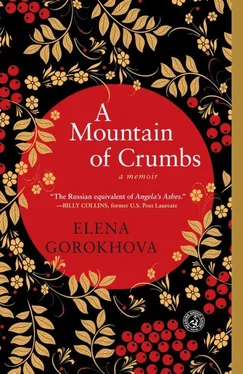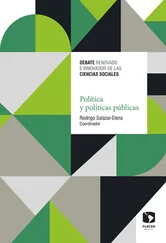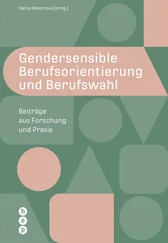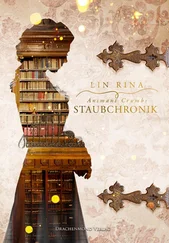I think of Uncle Vova, who couldn’t come to the wedding, but who wouldn’t frown at my staying in an apartment with Robert the same way he didn’t care about Crimean Boris or my sleeping on the beach.
But there is a more important message Aunt Muza wants to drive through my head, her final attempt to shake me into sanity. “Maybe you could still find someone else to marry,” she continues wistfully, looking into my face with searching eyes. “A good Russian fellow.” She stresses the word “Russian,” which makes me think of my cousin Fedya, her middle son, who has just emerged from a three-day drinking binge. “We were born here,” coos Aunt Muza, “so what do we know about their Western life?” She exchanges glances with my mother, who shrugs to underscore the fact that we certainly know nothing. All my family, with the exception of my sister, wish the West had already collapsed, as our newspapers promise, so they wouldn’t have to deal with this scandalous wedding.
On the other hand, Marina, who now openly supports my foreign marriage, thinks the West is perfectly healthy and it is our country that needs surgical intervention. She spits emphatically when my mother unfolds Pravda on the kitchen table and makes my provincial aunt wince by telling the story of the last general election, when Marina and I crossed out Brezhnev, the only name on the ballot, and wrote in Sakharov with a blue ballpoint pen. She rolls her eyes and laughs a devilish laugh every time Muza asks Robert about the West or utters the words “inflation” and “apartheid.”
“Apartheid?” Robert squints in confusion. It doesn’t matter to my aunt that apartheid is happening on the other side of the world from America. The West is the West, no matter what continent. All capitalist vices here get entangled and rolled together, like mismatched threads of wool, into one hairy ball of international evil.
IN OUR TEMPORARY APARTMENT, Robert and I pretend we are getting married. We both know it’s a game, but it’s not quite a game because we have invited six real guests to the ceremony scheduled at the Acts of Marriage Palace in three hours. We both know it’s not quite a marriage, but a marriage nevertheless, for which he has brought a suit borrowed from a friend. He doesn’t own suits, he says proudly, putting on dark brown pants that are an inch too short.
I stand over Galya’s table ironing my wedding dress, made from sparkly polyester the color of lilac that wrinkles at the slightest touch. I bought the fabric at Gostinyi Dvor on Nevsky, and Marina stitched it into something she saw in a coverless fashion magazine left lying around her theater. We didn’t know if the magazine was published this month or even this year, but the girl in the picture looked experienced and worldly, just as I wished to look.
I glide the iron over the staticky fabric, feeling guilty that I’m not as deeply in love with Robert as the woman at the Acts of Marriage Palace assumed I was. I wish my knees had gone weak when I saw him walking toward our side of the world at the airport; I wish my gut melted when he kissed me hello. I wonder if in the deep corner of his soul he really is in love with me—that kind of love, exhausting and irrational, the kind that infected me for a year or two after I met Boris in the Crimea. Is that why Robert has taken so much trouble to arrange all this, to come here for the third time this year? Yet nothing is irrational about Robert; nothing is overwhelming or even spontaneous. I’ve never heard him spit out a real curse; I’ve never seen him blush. Having been through a number of our parties where a bottle of vodka for two is just a start, he’s not once stumbled in drunken stupor or even looked glassy-eyed. Maybe, in some strange way, he is like me, hoarding his feelings inside and locking them up against strangers’ eyes, as if they were precious logs of Hungarian salami or hard-to-get Finnish boots. Maybe we are so similar that he’ll promptly forget Karen the Slavic professor and we’ll spend our days reading Gogol’s Dead Souls together and practicing the palatalized consonants that elude every non-Russian speaker.
“He is simply a horse. He’s taking you out of here,” Nina said the other day. “So what do you care if it isn’t a real marriage? Count your blessings and enjoy the ride.”
I don’t really care that Robert still thinks of Karen. I’m glad I’m marrying him because I like his foreignness. I like that he represents the forbidden and the unknown, that his nationality makes people gasp. I like that Robert has lifted me above the collective and now I can be the opposite of what we are all here, cynical and meek. The opposite of what our souls have become, cleaved and schizophrenic. I can heal and fuse the two parts of me together—the real, hidden self and what I let others see. And Natalia Borisovna will never dare volunteer her slippery advice again, powerless to condemn me for rolling my r ’s in a most un-British way. I like that I am no longer, as I was in Vera Pavlovna’s third grade, a yearning Pioneer vying for attention, a gold nugget to Zoya Churkina’s diamond.
I may even love Robert. When we first found ourselves in bed, we were both tentative, as if afraid to discover in each other something alien and ghastly. But the only foreign part of American sex turned out to be a supply of prophylactics.
“Do you know the story of a Soviet couple traveling to Cuba through Ireland?” Robert asks, as I stuff the condom wrapper into my purse so Galya won’t find it. “They had four hours in the Dublin airport. They’d learned the English word ‘protection’ for a condom and they asked the owner of a drugstore for protection. The owner called the police because he thought they were asking for political asylum, and they ended up in the police station.” Robert shakes his head, amused at the bad luck of the two heedless Soviets. “But do you see the irony?” he asks, chuckling. “Ireland is a Catholic country, so they don’t sell condoms. They will give you political asylum, but not a prophylactic.” I see the irony, but also wonder what happened to the Soviet couple after asking for prophylactics, let alone for political asylum. I wonder what’s going to happen to Robert and me.
Out of Galya’s first-floor window I stare at naked birch trees the color of the dirty snow on the ground, at a boy in valenki boots and an unbuttoned coat pulling an empty sled along a footpath. Robert, struggling to knot a tie that he also borrowed from a friend, looks toward where I’m looking, but the boy has already disappeared behind a corner. What is a boy, who should be in school, doing pulling a sled over the last patches of frail snow? What lie did he tell his mother when he left home?
I think of my imminent marriage as a play with a punch-line ending that is going to stun the English department of Leningrad University into near unconsciousness. A recent graduate is moving to America, students will whisper in the hallways, voices tinged with respect and envy. A young adjunct from the philology department has wiped out her future by marrying a capitalist, the dean will announce.
Then we will all play our usual game. Nina will pretend that she is shocked. Natalia Borisovna will pretend that she doesn’t know me. I will pretend that I’m sorry to leave.
WE STAND IN THE center of the wedding room of the Acts of Marriage Palace. In front of us is a woman in a red dress with a wide red ribbon across her chest, reciting a speech about the creation of a new society cell. The speech is modified for international marriages: there is no reference to our expected future contributions to Soviet society or to the cause of Communism. I was written off the list of trustworthy citizens three months ago, when we filled out the marriage application. “I wish you to live your life in the spirit of internationalism and friendship among all the peoples,” she says, a scolding note in her solemn voice, a dash of condemnation of a Soviet citizen who has chosen to marry a foreigner.
Читать дальше












